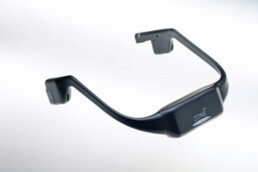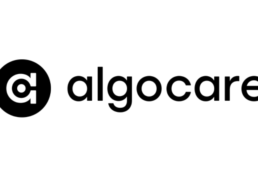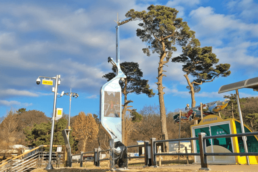Localization and navigation rely strongly on GPS (Global Positioning System) as it is both easy to use and accurate. However, GPS signals can be compromised by both natural and human sources. A startup in Korea called IDCITI has developed an underground GPS solution that can pinpoint a vehicle’s location when traveling through tunnels and underground parking lots.
Limitations with GPS
 While GPS is very reliable outdoors, it becomes unreliable once it gets compromised (e.g. tunnels or underground parking lots). These are some of the problems of GPS receivers in vehicles. Overall they do a great job, however, in situations where the vehicle goes under a tunnel, it is very likely you will not get any positioning measurements. These fairly deep underground tunnels introduce problems of GPS tracking. Vehicles and public transportation like buses can’t be located. In addition, there will be limitations in implementing robots and drones in these tunnels for maintenance.
While GPS is very reliable outdoors, it becomes unreliable once it gets compromised (e.g. tunnels or underground parking lots). These are some of the problems of GPS receivers in vehicles. Overall they do a great job, however, in situations where the vehicle goes under a tunnel, it is very likely you will not get any positioning measurements. These fairly deep underground tunnels introduce problems of GPS tracking. Vehicles and public transportation like buses can’t be located. In addition, there will be limitations in implementing robots and drones in these tunnels for maintenance.
This is why IDCITI has created uGPS, the most accurate, efficient, and effective underground positioning technology for vehicle localization on the market today.
uGPS – Underground GPS Solution

What is uGPS? uGPS solves the underground positioning problem. It allows all services using GPS to be available not only outdoors but also indoors. Software satellite platform uGPS is a cloud-based service with the ability to do real-time updates or reconfigurations. It offers precision that is indistinguishable from actual satellite signals. GPS reception is available even when a vehicle is traveling at high speeds (70km/h or more).
There are other indoor positioning technologies out there. However, each comes with certain problems.
- Image-based positioning – Insufficient accuracy due to various environmental variables.
- Inertial sensor-based positioning – Accuracy is insufficient as errors accumulate over time.
- Signal-based positioning – difficult to position high-speed moving objects.
Installation of SDR Devices
 In order to provide the best underground GPS solution, uGPS uses SDR (Software Defined Radio) devices. An SDR is an extremely high-performance device and offers a great deal of phase stability and components that can detect the faintest signals. Great for location tracking services or in safety-critical navigation systems. It can generate GPS signals using SDR from the position it is installed. Think of SDR as programmable hardware built on devices and chips. It has a wide range of bandwidth coverage and a backend for processing data. In addition, SDR equipment can support receiving radio signals originating from any GNSS satellite. Besides GPS other GNSS include Beibou, Galileo, GLONASS, NavIC, and QZSS.
In order to provide the best underground GPS solution, uGPS uses SDR (Software Defined Radio) devices. An SDR is an extremely high-performance device and offers a great deal of phase stability and components that can detect the faintest signals. Great for location tracking services or in safety-critical navigation systems. It can generate GPS signals using SDR from the position it is installed. Think of SDR as programmable hardware built on devices and chips. It has a wide range of bandwidth coverage and a backend for processing data. In addition, SDR equipment can support receiving radio signals originating from any GNSS satellite. Besides GPS other GNSS include Beibou, Galileo, GLONASS, NavIC, and QZSS.
uGPS can generate GPS signals using SDR from the position it is installed. This makes localization underground possible and is the most suitable solution for continuous positioning among GPS-related technologies. This is crucial for effective underground positioning as it can help locate specific vehicles in a tunnel or even a parking lot.
IDCITI has already used uGPS for Namsam Tunnel which is a 1km tunnel. They strategically placed SDR devices throughout the tunnel. They are now beginning their global entry into the broad range of market verticals and use cases that stand to benefit from their technology.
Potential to track Self Driving Cars in Underground Parking Lots
When will self-driving cars like Tesla be able to drive themselves around underground parking lots? Navigating an underground parking lot is very difficult for self-driving vehicles. This is because it will lose its access to GPS. This means the vehicle will need to figure out where it is relative to other vehicles, people, shopping carts, pillars, and walls based on its other built-in sensors. Therefore, uGPS has the potential to bring GPS into these underground parking lots to help self-driving cars access GPS. Therefore IDCITI has immense potential in both the B2G and B2B sectors.
After successfully testing its technology in Korea, IDCITI will look to expand into new markets in 2023 and is eager to connect with both governments and businesses looking to incorporate their technology.
Popular
Related Posts






